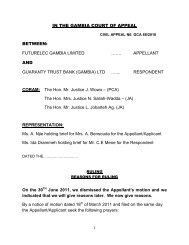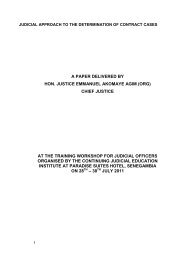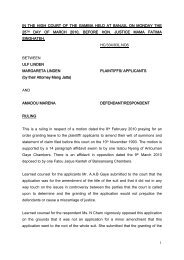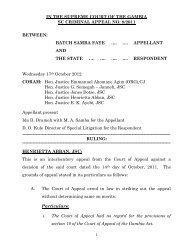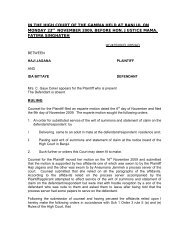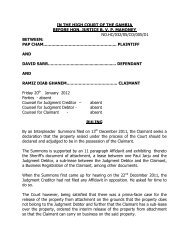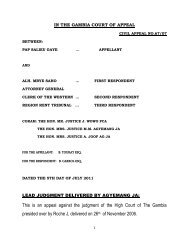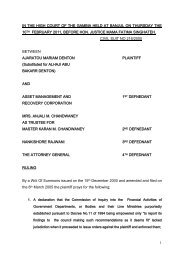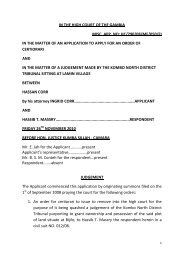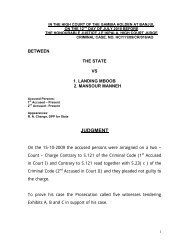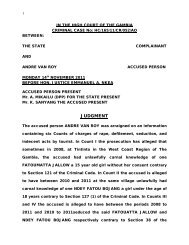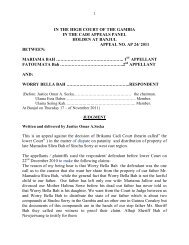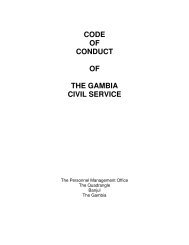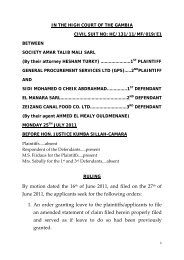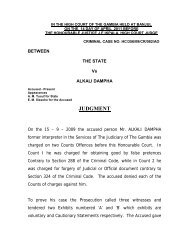Preface
Preface
Preface
You also want an ePaper? Increase the reach of your titles
YUMPU automatically turns print PDFs into web optimized ePapers that Google loves.
55<br />
this reason, it’s the decision of this panel that this appeal lacks merit on this ground<br />
for being fundamentally defective in law for want of jurisdiction.<br />
As to the second issue, whether the appellant is competent to maintain this<br />
appeal bearing in mind the fact that she was not a party to the proceedings at the<br />
lower court and no attempt was made by her to be joined as an interested party<br />
either at the lower court or before this panel, it is pertinent to know at this juncture<br />
who may appeal against the decisions of the District Tribunals in the Gambia.<br />
Section 26 of the District Tribunals Act (supra) restricts the right to appeal against<br />
its decisions to the parties. The section provides: "Any party who feels himself<br />
aggrieved by any judgment, order or a decision of a District Tribunal whether<br />
given in the exercise of its civil or criminal jurisdiction,···············may appeal<br />
therefrom to the Supreme Court···".<br />
The proviso to this section makes the issue of appeal from District Court to<br />
the Supreme Court amenable to modification by the Chief Justice with a view to<br />
eliminating undue formality, delay and expense. Section 137 A (6) of the 1997<br />
Constitution of the Gambia has overtaken the rules that may be made by the Chief<br />
Justice in this regard by providing that such appeals may lay to this panel where<br />
Sharia law is involved.<br />
Undoubtedly the appellant is an interested party but is she competent to<br />
appeal against the decision of the District Tribunal Act within contemplation of<br />
section 26 of the District Tribunals Act (supra)? Being a party to the proceedings<br />
of the District Tribunals is a condition precedent to filing an appeal against its<br />
decisions. The appellant has not satisfied that requirement since she was neither a<br />
party to the proceedings before the lower court nor was she joined as an interested<br />
party under the relevant rules of either court. The appellant should have applied



